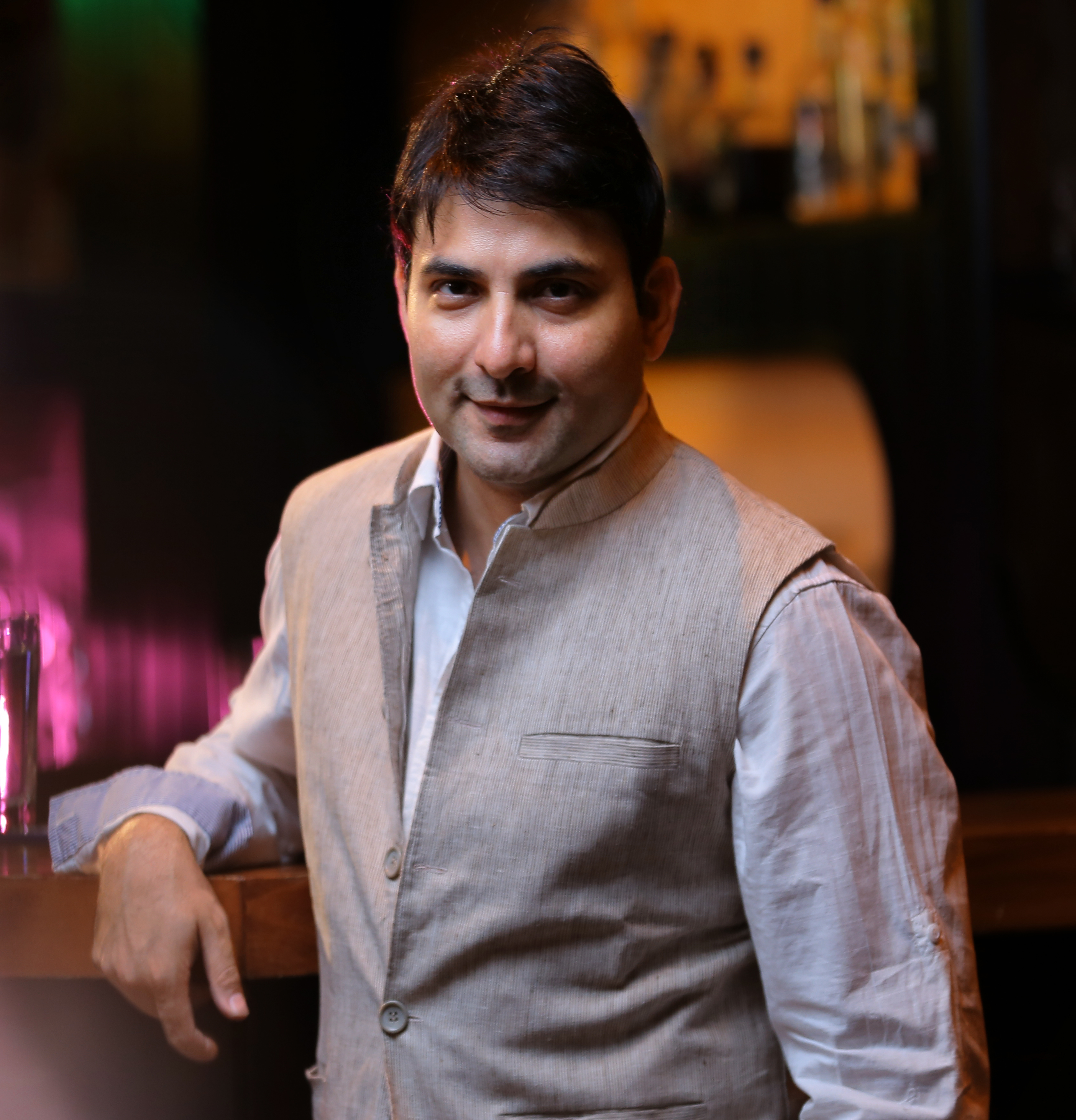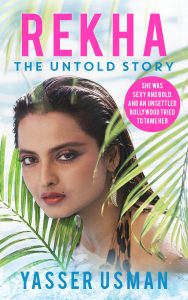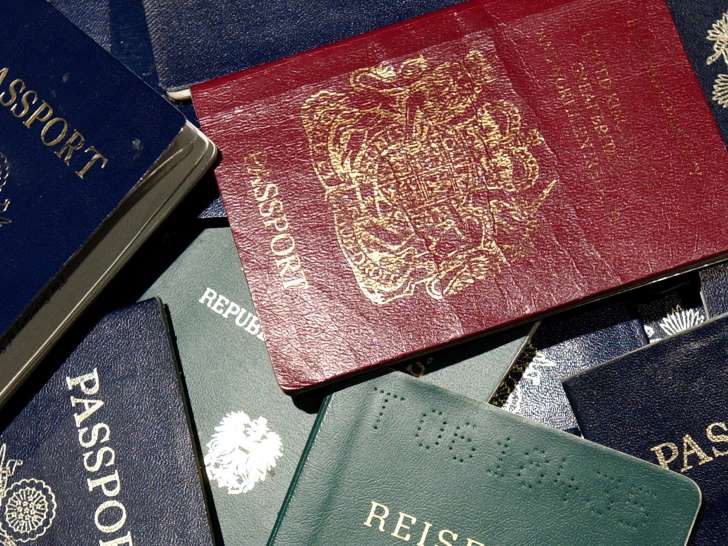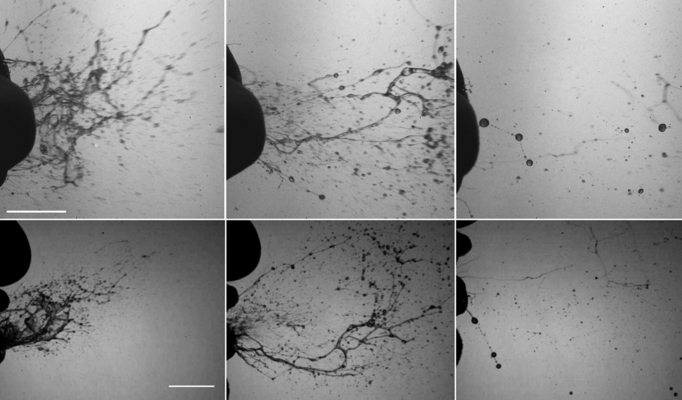
Yaseer Usman is a television journalist and author of the bestselling Rajesh Khanna- The Untold Story of India’s First Superstar. His second book Rekha-The Untold Story has been published recently. He has been a recipient of the prestigious Ramnath Goenka Excellence in Journalism Award and the NT (News Television) Awards. The South Asian News catches up with him during the busy promotions of his latest bestseller which has already got rave reviews by critics, and the reading public alike.

Let’s talk about how you started writing about, or interviewing celebrities. Some might say that you are so to speak piggy-backing on their success. What do you have to say?
I’ve been interviewing film personalities for more than a decade as a TV journalist. I am a recipient of the prestigious Ramnath Goenka Award for Excellence in Journalism (referred to as the Indian Pulitzer). I am passionate about Bollywood and the real stories behind the camera have always fascinated me. My first book was a biography of the ex-superstar Rajesh Khanna that essentially talked about how despite being the biggest star Bollywood has ever seen, he was incredibly lonely. That thought remained with me. I explored the same theme again in my second book, the recently released Rekha: The Untold Story.
Now, coming to your second point about ‘piggy-backing’ on their success. This is a contradiction because how else would someone write someone else’s history, and catalogue it for posterity. Just imagine if no one decided to write about Obama because of some such claim. As journalists and writers it is our job to write about people, cultures and history. In my case, it is film history and that too about the stars of 1970s.
What exactly goes behind writing a biography? How much of research is really done? How would you determine what is truth and what is concocted in yellow journalism?
Normally a biography takes a minimum research of one year. Just imagine, going to bed every night thinking about your subject and worrying everyday about finishing one more chapter. It plays with your mind 24×7. An enormous amount of effort goes into the humungous research that one needs to go through.
Although I write about film stars, I don’t go the ‘yellow journalism’ way. I believe in a balanced recounting of that person’s life, trying to understand the subject professionally and personally. Talking to people close to the subject of the book, analysis of their careers and most importantly looking up and documenting their archival interviews. In both my books you’ll find the subject (Rajesh Khanna/Rekha) is actually taking the story forward, talking about the most important events of his/her life. That makes it very credible. The format is very novelistic, and novel in nature.
Your biography on Rajesh Khanna was well received. Tell us in terms of numbers how successful was this book?
It got published by Penguin Random House; it was an instant bestseller and was featured in every major newspaper with great reviews. It was celebrated at the prestigious Jaipur Literature Festival. Also, I write my books in English as well as in Hindi so that they reach out to the maximum readers in both languages.
Your biography on Rekha is now drawing rave reviews all over India. How long did this work take from the idea stage, and why did you choose to write about Rekha. Hasn’t enough already been said about her?
The reaction to my book on Rekha has been absolutely insane. My phone hasn’t stopped ringing. It was trending on Twitter last Sunday and the newspapers and TV channels can’t seem to get enough of it. It is literally everywhere. Looks like the hard work is paying off.
I started working on it immediately after my first book was published in December 2014. So nearly two years of hard work has gone behind it. I never was a huge Rekha fan. She wasn’t high up in the hierarchy of Bollywood stars for a child of the 1980s. But I was always intrigued, even moved, by her life; the loneliness and sadness behind the much celebrated diva image. I wanted to explore the real story of Rekha. Like you mentioned there’s already been much written about her. But that narrative is always about her relationships and affairs. No one talks about the fact that she came to Bollywood as a 14-year-old girl and was brutally criticized, even body-shamed for her unconventional looks and dark complexion. This overshadowed the fact that she continued being the leading actress for two long decades, an almost impossible feat in an industry where lead actresses have a very short shelf life and are forgotten in their mid thirties. Always remember, there is a story hiding behind every controversy. There were many in her life. These were the stories that made me very curious, and I decided to explore the person behind the facade.
Have you met up with her to fill in the blanks in the book, or is your book based on interviews, hearsay and other people’s stories (co-stars, directors, producers)?
I spoke with her secretary and confidante Farzana. But a meeting with Rekha did not materialize. Then the extensive research began. Talking to Rekha’s co-stars, directors, family members, close friends, even her hairdressers and makeup men. They are the people who narrated stories about the real Rekha. Celebrated filmmakers like Gulzar, Shyam Benegal, Khalid Mohamed, Muzaffar Ali and various journalists who have interviewed her closely over the years. Then the massive secondary research in terms of archival interviews began. Cases in example—what did Rekha say as a 14-year-old debutant? What did she talk about when her husband committed suicide? These are rare interviews. Film journalism at that point of time was unlike today’s PR based interviews. The celebrities were honest and uncensored and that resulted in real conversations. Those rare Rekha interviews portray a never-seen-before picture. Reactions after reading the book have ranged from shock to surprise to awe.
Since she is still alive, were there a lot of legalities involved before the book could even progress to the next level. If so, what were the hurdles that you had to surpass?
It is a sheer journalistic account. If I am talking about a particular episode of Rekha’s life, I am giving the versions of all the characters involved. When her husband committed suicide, for instance, we look at what went wrong in their marriage. I am giving the story from her husband’s point of view, from Rekha’s point of view, the family’s version and how the media reacted to their relationship, and finally the tragedy that threatened to demean her. It takes into account a complete viewpoint. There is no opinion, just pure facts and news reports. However the book went through a team of legal experts and they liked how it was documented.
Given the fact that you had to spend a lot of time with ‘Rekha’, in your notes and manuscript while writing about her, what is it that you find remarkable, or shocking, and does not appear in the book? What is it that you would have liked to have more or less of in the book?
Rekha is a woman much ahead of her time. In the 1970s it was rare to see women who spoke their minds, so she was an exception. Rekha surprised and perhaps shocked everyone with her bold and outspoken attitude. The tagline on the book cover says: ‘She was sexy and bold. And an unsettled Bollywood tried to tame her.’ During the initial years of her career, Rekha was known for her uninhibited and honest interviews. She said, “You can’t come close, really close, to a man without making love”, “It is sheer fluke that I have never got pregnant so far” and “Premarital sex is very natural.” Such statements rattled the hypocritical film industry she belonged to.
Also, when you talk about Rekha, it is always her association with Amitabh Bachchan or her glamorous ‘diva’ image. But there is more to Rekha—what she went through as a bastard child, unloved and unaccepted by her superstar father. Such childhood impressions never really go away. When you look at her story in totality, and if you’ve had perceptions about her, that will change. She emerges as an eternal fighter who refused to accept defeat despite everyone being against her.
It would have been so much better had she spoken with me. Her perspective at this juncture would have made this book even more special. I do hope she speaks with me at some point.
How has she reacted to the book? Was she invited to any of the book launches? Has she ever tried to reach out to you, or vice versa?
It just too soon. The book was released this month. There has been no reaction from her side. She normally doesn’t give interviews. I am sending her a copy. Hope she likes it.
Awards or bestsellers? What appeals most to you most?
The heart-warming reactions of the readers. After I wrote the biography of Rajesh Khanna, I received numerous mails with people confessing their ignorance about Rajesh Khanna’s loneliness; an aspect they were unaware of. His diehard fans wrote extremely emotional letters saying that they cried while reading the chapters about his last days on the sets and his untimely death.
Initially, I was hesitant to write Rekha’s story. Rekha complexity and life is overshadowed by her relationship with Amitabh Bachchan — it’s as though she has only one aspect to her personality. I wanted to change this one-sided narrative. I am happy with the reaction of my readers; this has surpassed all my expectations. It is already a bestseller. It went into re-print in the first week itself. So I am happy.
You’ve written biographies about 2 ageing superstars. What’s next?
I want to complete the trilogy of the lonely superstars. Haven’t really decided about the subject of my third book. But before that happens I am currently working on a film script—a political thriller.
Jude Paul Fernandes / jude@thesouthasiannews.com


 South Asian News E-Paper
South Asian News E-Paper Punjabi News E-Paper
Punjabi News E-Paper

















